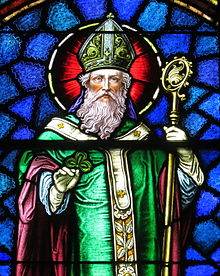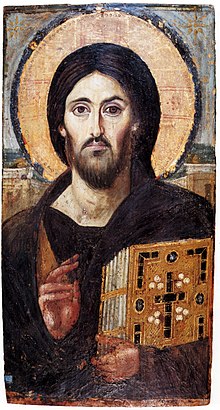Portal:Religion
The Religion Portal
Religion is a range of social-cultural systems, including designated behaviors and practices, morals, beliefs, worldviews, texts, sanctified places, prophecies, ethics, or organizations, that generally relate humanity to supernatural, transcendental, and spiritual elements—although there is no scholarly consensus over what precisely constitutes a religion. Different religions may or may not contain various elements ranging from the divine, sacredness, faith, and a supernatural being or beings. (Full article...)
 Vital article
Vital article
Vital articles to understand Religion.
Sikhism (/ˈsɪkɪzəm/ SIK-iz-əm), also known as Sikhi (Punjabi: ਸਿੱਖੀ Sikkhī, [ˈsɪk.kʰiː] ⓘ, from ਸਿੱਖ, Sikh, 'disciple / learner'), is an Indian religion and philosophy in particular for the Sikh ethnoreligious group that originated in the Punjab region of India around the end of the 15th century CE. The Sikh scriptures are written in the Gurumukhi script particular to Sikhs. It is one of the most recently founded major religious groups and among the largest in the world, with about 25–30 million adherents (known as Sikhs). (Full article...)
 Did you know (auto-generated)
Did you know (auto-generated)
Did you know it about Religion?
- ... that a religious community is a group of people who practice the same religion, but do not have to live together?
- ... that Freedom of Religion South Africa filed an unsuccessful lawsuit to keep child spanking legal?
- ... that Catherine de Parthenay, a 16th-century Huguenot leader, was a member of "a highly successful network of information" during the French Wars of Religion?
- ... that some stone circles such as Stonehenge were perhaps great graveyards of honoured spiritual leaders in prehistoric religion?
- ... that the nonconformist minister Ichabod Chauncey was banished from England under the Religion Act 1592 and spent two years in exile in Holland where he published a defence of his actions?
- ... that the capital of South Ossetia once had more Jews than Ossetians?
Featured articles in Religion.

Top 10 WikiProject Religion Popular articles of the month
This following Religion-related articles is a most visited articles of WikiProject Religion, See complete list at Wikipedia:WikiProject Religion/Popular pages.
 Subcategories
Subcategories
Select [►] to view subcategories
Topics
Select [show] to view subtopics
 Get involved
Get involved
For editor resources and to collaborate with other editors on improving Wikipedia's Religion-related articles, visit WikiProject Religion.
Discover Wikipedia using portals









































![Image 1 A map of countries where Nowruz is celebrated or are public holidays Nowruz (Persian: نوروز [noːˈɾuːz]) is the Iranian or Persian New Year celebrated by various ethnic groups worldwide. It is a festival based on the spring equinox—which marks the first day of the new year in the Iranian Solar Hijri calendar, on or around 21 March on the Gregorian calendar. (Full article...)](http://upload.wikimedia.org/wikipedia/en/d/d2/Blank.png)



















